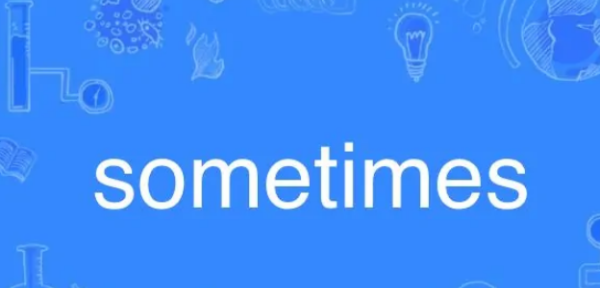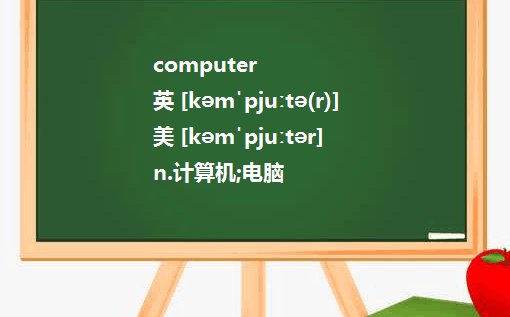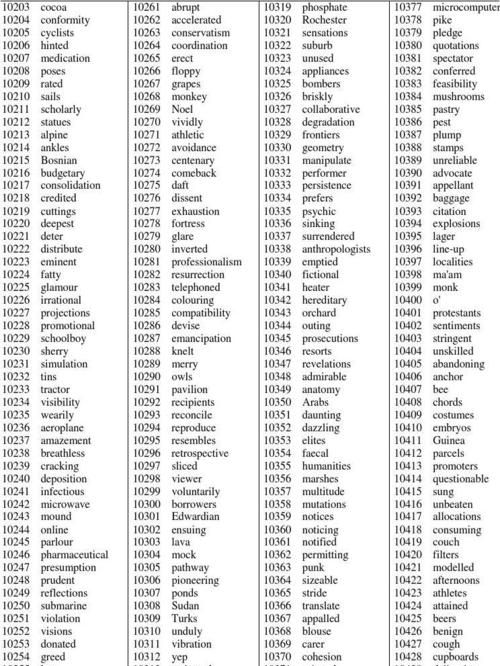本文目录
英语日常常用单词有哪些
常用单词如下:
1、sometimes:sometimes是一个英语单词,主要用作为副词,意为“有时,间或”。
例句:Sometimes we eat out of doors. 有时我们在户外进餐。
2、fear:名词、及物动词、不及物动词,作名词时意为“害怕;恐惧;敬畏;担心”,作及物动词时意为“害怕;敬畏;为…担心”,作不及物动词时意为“害怕;敬畏;为…担心”。
例句:Do you have this fear?你有过这样的恐惧么?
3、list:list是一个英语单词,名词、动词,作名词时意思是“列表,清单,目录;(船的)倾斜”,作动词时意思是“列清单;把…列入一览表;被列入价目表;把…列入正式名单(尤指医院或法庭的名单);(船只)倾斜; 使(公司) 上市”。
例句:What else should be on this list?还有什么应该出现在这个名单上?

4、paint:英语单词,名词、动词,作名词时意为“油漆;颜料;(非正式)化妆;三秒区;(尤指模拟真画效果的)绘画功能;花马,(美)潘(人名)”,作动词时意为“油漆;给(脸、皮肤)化妆;给……刷上(液体);用绘图程序作画;(在雷达屏幕上)显示(飞机等);描绘;画(图画);描述”。
例句:The paint should have dried off by this time tomorrow.
油漆到明天这个时候就应该已经干了。
5、soon:英语单词,副词,作副词时意为“快;不久,一会儿;立刻;宁愿”。
例句:We will be with you soon.
很快我们会和你们在一起。
初中常见的英语单词(100个左右)
1、乐器:guitar 吉他, piano 钢琴, drum 鼓, trumpet 小号, violin 小提琴, accordion手风琴
2、电器:telephone 电话, computer 电脑, television 电视, radio 收音机, fridge 电冰箱, microwave oven 微波炉, air conditioner 空调,
3、天气:fine 晴天, rainy 雨天, cloudy 多云, windy 刮风, stormy 暴风雨, foggy 雾, snowy下雪天
4、学科:Chinese 中文, math 数学, English 英语, P.E 体育, music 音乐, history 历史, Physics 物理, biology 生物, geography 地理, chemistry 化学, politics 政治, art 美术
5、家族:grandfather 祖父, grandmother 祖母, father 父亲, mother 母亲, uncle 叔叔, aunt 阿姨, sister 姐姐, brother 兄弟, son 儿子, daughter 女儿, husband 丈夫, wife 妻子
一、drum
读音:英 [drʌm] 美 [drʌm]
例句:
He drummed his fingers on the leather top of his desk.
他用手指连续敲击他的皮革桌面。
二、computer
读音:英 [kəmˈpjuːtə(r)] 美 [kəmˈpjuːtər]
例句:
He also deleted files from the computer system.
他还从计算机系统里删除了文件。

三、fine
读音:英 [faɪn] 美 [faɪn]
例句:
If competition is the best way to achieve it, then, fine.
如果竞争是达到目标的最佳方式,那就这么着吧。
四、Chinese
读音:英 [ˌtʃaɪˈniːz] 美 [ˌtʃaɪˈniːz]
例句:
The Dunhuang frescoes are gems of ancient Chinese art.
敦煌壁画是我国古代艺术中的瑰宝。
五、mother
读音:英 [ˈmʌðə(r)] 美 [ˈmʌðər]
例句:
She's an English teacher and a mother of two children.
她是英语教师,还是两个孩子的母亲。
最常用英语单词
最常用2000英语单词
2000个单词走天下

我们在学习外语的时候,可能已经认识到有的单词在文章中频繁出现,而有的单词在一页书中最多出现一至二次,有的单词在一册书中也仅出现一至二次。所以每个单词在构成文章方面各起着不同的作用。一些反复出现、起着重要作用的单词虽然数量不多,但使用的频率很高,几乎占了整个文章的一半以上,而其他大量单词,起着一种修饰作用。
对此莫斯科国立语言研究所通过对英国、美国、法国、西班牙的34部文学作品的分析和研究,得出了一些可供参考的数据,见下表。
常用单词的文章构成能力占文学作品单词总数的百分比:
最初1000个单词
80.5%
第二个1000词
6.1%
第三个1000词
3.4%
第四个1000词
2.2%
第五个1000词
1.3%
合计5000个单词
93.5%
以英语为例加以说明。最常用的单词,即使用频率高的1000个单词平均占34部著作中语言量的80.5%,如果你掌握了2000个单词,就可以读懂书中的86%的内容,掌握了3000个单词,就可以读懂90%的内容,要是你掌握了5000个单词,就可以读懂93.5%的'内容。若能达到10000,应该说阅读就不成为问题了。
下面是常见的2000英语单词按使用频率从高到低进行排列的,因为它是按国外英语单词的实际使用频率进行统计的,可能不太适合在中国的英语单词实际使用频率,但它有助你了解英语单词的实际使用情况。
1 the
2 be
3 of
4 and
5 a
6 to
7 in
8 he
9 have
10 it
11 that
12 for
13 they
14 I
15 with
16 as
17 not
18 on
19 she
20 at
21 by
22 this
23 we
24 you
25 do
26 but
27 from
28 or
29 which
30 one
31 would
32 all
33 will
34 there
35 say
36 who
37 make
38 when
39 can
40 more
41 if
42 no
43 man
44 out
45 other
46 so
47 what
48 time
49 up
50 go
51 about
52 than
53 into
54 could
55 state
56 only
57 new
58 year
59 some
60 take
61 come
62 these
63 know
64 see
65 use
66 get
67 like
68 then
69 first
70 any
71 work
72 now
73 may
74 such
75 give
76 over
77 think
78 most
79 even
80 find
81 day
82 also
83 after
84 way
85 many
86 must
87 look
88 before
89 great
90 7 back
91 through
92 long
93 where
94 much
95 should
96 well
97 people
98 down
99 own
100 just
101 because
102 good
103 each
104 those
105 feel
106 seem
107 how
108 high
109 too
110 place
111 little
112 world
113 very
114 still
115 nation
116 hand
117 old
118 life
119 tell
120 write
121 become
122 here
123 show
124 house
125 both
126 between
127 need
128 mean
129 call
130 develop
131 under
132 last
133 right
134 move
135 thing
136 general
137 school
138 never
139 same
140 another
141 begin
142 while
143 number
144 part
145 turn
146 real
147 leave
148 might
149 want
150 point
151 form
152 off
153 child
154 few
155 small
156 since
157 against
158 ask
159 late
160 home
161 interest
162 large
英语中最常用的300个单词有哪些
pen 钢笔 pencil 铅笔 pencil-case 铅笔盒 ruler 尺子 eraser 橡皮 crayon 蜡笔book 书 bag 书包 sharpener 卷笔刀 school 学校
head 头face 脸nose 鼻子mouth 嘴eye 眼睛ear 耳朵arm 胳膊finger 手指 leg腿foot 脚body 身体
red 红色的yellow 黄色的green 绿色的blue 蓝色的 purple 紫色的white 白色的black 黑色的orange 橙色的pink 粉色的brown 棕色的
cat 猫dog 狗monkey 猴子panda 熊猫rabbit 兔子duck 鸭子pig 猪bird 鸟bear 熊elephant 大象mouse 老鼠squirrel 松鼠
cake 蛋糕bread 面包hot dog 热狗hamburger 汉堡包chicken 鸡肉
French fries 榨薯条Coke 可乐juice 果汁milk 牛奶water 水tea 茶coffee 咖啡
one 一two 二three 三four 四five 五six 六seven 七eight 八
nine 九ten 十doll 玩具娃娃boat 小船ball 球kite 风筝
balloon 气球car 小汽车plane 飞机
boy 男孩 girl 女孩teacher 教师student 学生this 这个my 我的friend 朋友I’m=I am 我是nice 好的;愉快的meet 遇见;碰见goodbye 再见too 也;太
father 父亲;爸爸dad 爸爸(口语)mother 母亲;妈妈mom 妈妈(口语)man男人woman 女人grandmother (外)祖母
grandma (口语)(外)祖母grandfather (外)祖父
grandpa (口语)(外)祖父sister 姐妹brother 兄弟
great 太好了really 真地;确切地and 和;并且how 多么;怎么样
eleven 十一twelve 十二thirteen 十三fourteen 十四fifteen 十五sixteen 十六seventeen 十七eighteen 十八nineteen 十九twenty 二十how many 多少can 能够;可以look at 看;瞧
peach 桃pear 梨orange 橙子watermelon 西瓜apple 苹果
banana 香蕉strawberry 草莓grape 葡萄like 喜欢some 一些;某些thanks 多谢
bus 公共汽车bike 自行车taxi 出租车jeep 吉普车desk 课桌
chair 椅子walkman 随身听lamp 台灯your 你的;你们的
zoo 动物园
small 小的big 大的long 长的short 短的;矮的tall 高的
giraffe 长颈鹿deer 鹿
Window(窗户) board(板) light(灯) picture(图片) door(门) floor(地板) classroom (教室) computer(电脑) teacher’desk(讲台) wall(墙) fan(扇子)
bag(包) pencil(铅笔) pen(钢笔) book (书) ruler(尺子) pencil-case(铅笔盒)
teacher(教师) student(学生) boy(男孩) girl(女孩) friend(朋友)
home(家) room(房间) school(学校) classroom(教室)
window(窗户) desk(课桌;书桌) door(门) chair(椅子) bed(床)
rice(米饭) beef(牛肉) bread(面包) milk(牛奶) egg(蛋)
water(水) chicken(鸡肉) fish(鱼)
sister(姐妹) brother(兄弟) father(父亲;爸爸) mother(母亲;妈妈)
driver(司机) doctor(医生) farmer(农民) nurse(护士)
computer(计算机) board(写字板) fan(风扇) light(灯)
this(这;这个) is(是)my(我的) that(那;那个) your(你的)
teacher’s desk(讲台) picture(图画;照片) wall(墙壁) floor(地板) yes(是;是的) it(它)
one(一) two(二) three(三) four(四) five(五) six(六) seven(七) eight(八) nine(九) ten(十) what(什么) time(时间)
it’s=it is …o’clock(…点钟) math(数学) Chinese(语文) English(英语) P.E.(体育) music(音乐) for(为;给) class(课程)
jacket(夹克衫) shirt(衬衫) skirt(裙子) dress(连衣裙)
T-shirt(T恤衫) red(红色的) blue(蓝色的) yellow(黄色的)
green(绿色的) white(白色的) no(不;不是) not(不;不是的) colour(颜色)
warm(暖和的) cold(寒冷的) cool(凉爽的) today(今天)
jeans(牛仔裤) pants(长裤) socks(袜子) shoes(鞋子) let’s=let us play(玩;踢) football(足球) snowy(下雪的) sunny(晴朗的)
how much(多少钱) big(大的) small(小的) long(长的) short(短的) apple(苹果) banana(香蕉) pear(梨) orange(橙子) watermelon(西瓜) are(是) they 它(他、她)们
horse(马) aren’t=are not cat(猫) rabbit(兔子) pig(猪) duck(鸭子) dog(狗) eleven(十一) twelve(十二) thirteen(十三) fifteen(十五) twenty(二十) how many(多少) there(那儿;那里)
Young (年轻的) funny (滑稽可笑的) tall (高的)
strong (强壮的) kind (和蔼的;亲切的) old (年老的)
short (矮的)thin (瘦的) Mr (先生)
like (像;喜欢) strict (严格的) smart (聪明的;巧妙的) active (积极的;活跃的) quiet (安静的;文静的)
very (很;非常) but (但是)
Monday (星期一) Tuesday (星期二) Wednesday (星期三)
Thursday (星期四) Friday (星期五) Saturday (星期六)
Sunday (星期天) day (天;日子) have (有;吃)
on (在…..时候) do homework (做作业)
watch TV (看电视) read books (读书)
eggplant (茄子) fish (鱼) green beans (青豆) tofu (豆腐) potato (土豆) tomato (西红柿) for (为;给)
lunch (中餐;午饭) we (我们) tasty (好吃的)
sweet (甜的) sour (酸的) fresh (新鲜的)salty (咸的)
favourite (最喜爱的;特别喜爱的) they are (他们是)
fruit (水果) grape (葡萄)
Cook the meals (倒垃圾) water the flowers (浇花)
sweep the floor (扫地) clean the bedroom (打扫卧室)
make the bed (铺床) set the table (摆饭桌)
wash the clothes (洗碗碟) do the dishes (收拾衣服)
use a computer (使用计算机)
curtain (空调) trash bin (垃圾箱) closet (壁橱)
mirror (镜子) end table (床头柜) bedroom (卧室)
kitchen (厨房) bathroom (卫生间) living room (客厅)
in (在…里面) on (在…上面) under (在…下面)
near (在..旁边) behind (在…后边) clothes (衣服)
river (河流) flower (花) grass (草) lake (湖泊)
forest (森林) path (路) park (公园) picture (照片)
house (房子) bridge (桥) tree (树) road (公路)
building (建筑物) clean (干净的)
do morning exercises(晨练) eat breakfast(吃早饭)
have English class(上英语课) play sports(进行体育运动)
eat dinner(吃晚饭) when(什么时候) evening(夜晚;晚上)
get up(起床) at(在…点钟) usually(通常;一般)
noon(中午) climb mountains(爬山)
go shopping(购物;买东西)
play the piano(弹钢琴) visit grandparents(看望祖父母)
go hiking(去远足) weekend(周末) often(经常)
sometimes(有时候)
spring(春天) summer(夏天) fall(秋天) winter(冬天)
season季节) which(哪一个) best(最;极) swim(游泳)
fly kites(放风筝) skate(滑冰;滑冰鞋)
make a snowman(堆雪人) plant trees(种树) why(为什么) because(因为) sleep(睡觉)
Jan./January(一月) Feb./February(二月)Mar./March(三月)
Apr./April(四月) May(五月) June(六月)
July(七月) Aug./August(八月) Sept./September(九月)Oct./October(十月) Nov./November(十一月)
Dec./December(十二月) birthday(生日)
uncle(叔叔;舅舅) her(她的) date(日期)
aw pictures(画画)cook dinner(做饭) read a book(看书)
answer the phone(接电话) listen to music9(听音乐)
clean the room(打扫房间) write a letter(写信)
write an e-mail(写电子邮件) mom(妈妈)grandpa(爷爷;外公)study(书房)
fly(飞) jump(跳) walk(走) run(跑) swim(游泳)
kangaroo(袋鼠) sleep(睡觉) climb(往上爬) fight(打架)
swing(荡;荡秋千) drink water(喝水)
take pictures(照相) watch insects(观察昆虫)
pick up leaves(采摘树叶) do an experiment(做实验)
catch butterfly(捉蝴蝶) honey(蜂蜜) count insects(数昆虫)
collect leaves(收集树叶) write a report(写报告)
play chess(下棋)have a picnic(举行野餐)
by (经,乘) foot(脚) bike(自行车) bus(公共汽车) train(火车) how(怎样) go to school(上学) traffic(交通)
traffic light(交通灯) traffic rule(交通规则) stop(停,停车站)wait(等待) get to(到达)
library(图书馆) post office(邮局) hospital(医院) cinema(电影院) turn(转弯) bookstore(书店) where(在哪里,到哪里) please(请) next to(与…相邻) right (右边) left(左边) straight(成直线地) then (然后)
next week(下周) this morning(今天上午) this afternoon(今天下午)
this evening (今天晚上) comic book(漫画书) post card(明信片) newspaper(报纸) buy(购买)
hobby(爱好) ride a bike--riding a bike(骑自行车) dive--diving(跳水)
play the violin—playing the violin(拉小提琴)
make kites—making kites(制作风筝)
collect stamps—collecting stamps(集邮) live –lives(居住) teach--teaches(教) go--goes(去) watch--watches(看) read--reads(读,看) does doesn’t=does not
singer(歌唱家,歌手) writer(作家) actor(男演员) actress(女演员) artist(画家) TV reporter(电视台记者) engineer(工程师) accountant(会计) policeman(男警察) salesperson(销售员)
cleaner(清洁工) where(在哪里,到哪里) work(工作)
rain(雨) cloud (云) sun(太阳) stream(河,溪) come from(来自,从…来) seed(种子) soil(土壤) sprout (苗,芽) plant(植物,种植) should (应该) then(然后)
tall—taller更高的 short—shorter 更矮的 strong—stronger 更强壮的 old—older 年龄更大的 young—younger 更年轻的
big—bigger 更大的 heavy—heavier 更重的 long—longer 更长的 thin—thinner 更瘦的 small—smaller (体型)更小的
have a fever 发烧 have a sore throat喉咙疼 have a cold感冒
have a toothache 牙疼 have a headache 头疼
matter事情,麻烦 sore 疼的 hurt疼痛 nose 鼻子
tired疲劳的,累的 excited兴奋的 angry生气的 happy高兴的 bored无聊的,烦人的 sad 忧伤的,悲伤的
watch—watched 看 wash—washed 洗 clean—cleaned打扫
play—played玩 visit—visited 看望 do—did
last weekend 上一个周末 go—went去
go to a park—went to a park 去公园
go swimming—went swimming去游泳
go fishing—went fishing去钓鱼 read—read 读
go hiking—went hiking 去远足
learn Chinese—learned Chinese学汉语
sing and dance—sang and danced 唱歌和跳舞
eat good food—ate good food吃好吃的食物
take pictures—took pictures 照相 climb—climbed 爬 have—had buy presents—bought presents买礼物 row a boat—rowed a boat 划船 see elephant—saw elephant 看大象 go skiing—went skiing 去滑雪 go ice-skating—went ice-skating 去滑冰 how怎么,如何 get—got 到达 last 上一个的,仅余的,留在最后的

以上就是关于英语常用单词70个,英语日常常用单词有哪些的全部内容,以及英语常用单词70个 的相关内容,希望能够帮到您。

